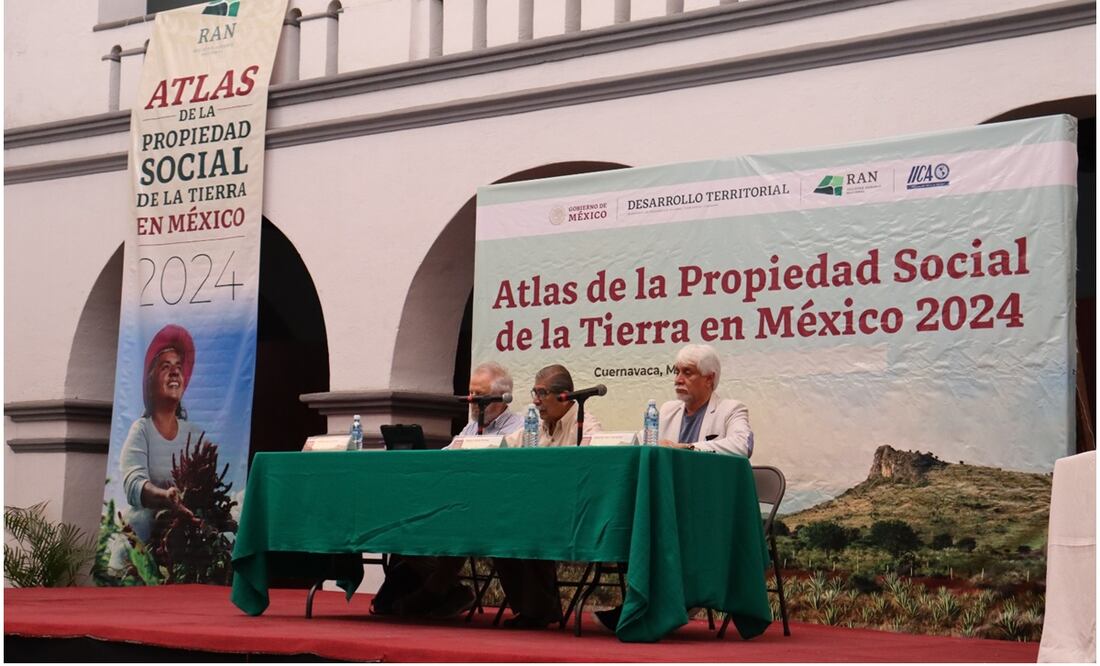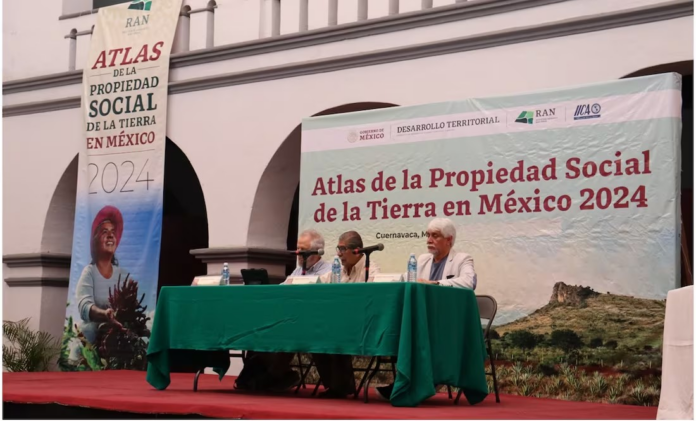
The former Chief Director of the National Agrarian Registry (RAN), Plutarco Emilio García Jiménez, stated that organized crime groups have appropriated tracts of land in the states of Chiapas, Oaxaca and Sinaloa.
“There has been this appropriation of communal and ejido lands by criminals that has caused people to emigrate in some cases; there are displaced people, especially in Chiapas,” said García Jiménez prior to the presentation of the “Atlas of Social Property of Land in Mexico.”
This Atlas, he explained, for the first time concentrates maps, graphics and information generated by the RAN, on the territory, natural resources, women, indigenous people and other aspects of life in the certified ejidos and communities in the country.
The work aims to be considered in development planning at the federal level, for territorial planning because it also has agricultural zones, the registry of protected natural areas; it is a very complete work, he guaranteed.
Read also Warehouses of former Morelos official searched for fertilizers allegedly purchased with government budget
“The information detailed in this work can be a tool for decision-making in territorial development, as it shows the relationship of the agrarian nuclei with the availability of water, demographic development and the characteristics of the soils, such as their capacity for carbon retention, for the care of their resources,” he reported.
Plutarco García Jiménez reported that during his management at the head of the RAN he managed to reduce the agrarian backlog and from 40 thousand issues that they received as pending issues to resolve, he left only 9 thousand and could not be reduced to zero because issues are received every day, he said.
The relevant issues are, above all, the regularization of ejidos and communities, of which there are still a good number at the national level, that are not recognized and regularized, certified.
It is a task that we carry out, but we still have around 1,700 communities to be regularized, recognized and certified, he specified.
The states with the greatest lag are Guerrero, Oaxaca, Chiapas and Veracruz, while in Morelos there is not as much of a problem because a lot of work was done during this six-year term with the delivery of different agrarian documents.
Source: eluniversal






